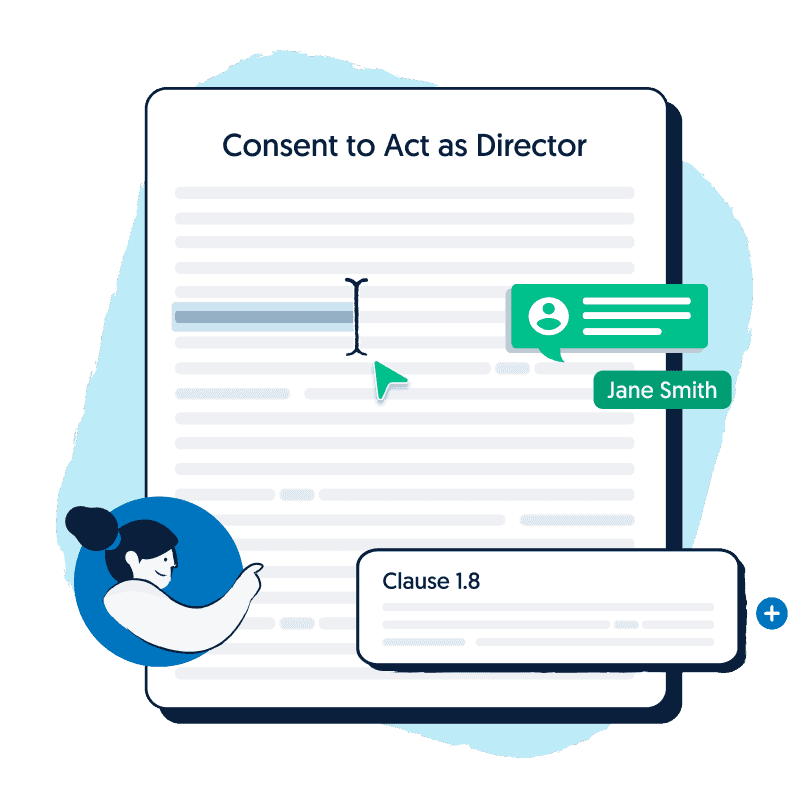💡Key Insight
- A criminal record does not automatically prevent you from being a company director in Australia; most prior convictions do not disqualify you from the role under the Corporations Act. However, certain types of convictions tied to dishonesty or offences involving the company itself can trigger disqualification.
- Directors with convictions for serious crimes involving business conduct—especially those heard on indictment—and some foreign offences may be barred from serving, reflecting legal safeguards against unfit conduct in corporate governance.
- The law sets specific disqualification periods (commonly starting from conviction or release) that range from temporary terms to longer restrictions, meaning convictions more than five years old may not disqualify you from directorship.
- If you have concerns about eligibility due to a criminal record, seeking professional legal advice helps clarify whether your specific offences affect your capacity to act as a company director.
People often wonder whether they can still be a company director if they have a criminal record. In this article we will explain when a criminal record will stop you from being a company Director. For more general information about company directors, including their duties, read our article ‘Duties of Directors and Officers‘.
Directors With Criminal Records
The simple answer to the question can a company director can have a criminal record is: it depends. In general, a criminal record will not stop you from being a company director. This applies if you have prior criminal convictions or are convicted while you are a director. However, there are some convictions which will stop you from being a director. Under the Corporations Act 2001 (Cth) (‘Corporations Act’) there are three types of convictions that will stop you from being a company director. Section 206B sets out the rules for disqualification for directors with a criminal record.

Get your Consent to Act as Director legal document for free.
A Consent to Act as Director document is a written consent that the director agrees to be a director of a company. Access other 350+ documents when you sign up to a plan with Lawpath.
Crimes Involving the Company
Some convictions for crimes involving the company will cause directors to be disqualified. People convicted of certain charges on indictment cannot be a director if the charges involve running the company. This applies if the offence relates to decisions made for the company or that could affect its financial standing. An indictment is a written charge of a serious offence. Higher courts such as the District Court hear these kinds of charges. This is in contrast with less serious summary charges which are heard in a local or magistrates court. Directors indicted for crimes related to the running of a company should seek professional legal advice. This is because conviction will mean that they can no longer be a director of the company. You should speak with a criminal lawyer if you have been indicted for this kind of offence.
Offences Under The Corporations Act
People convicted of certain offences under the Corporations Act are also disqualified from acting as directors. Directors are disqualified for convictions for offences that carry a penalty of at least 12 months in prison. The Corporations Act contains over 100 offences in this category. Schedule 3 lists all offences and maximum penalties under the act.
Dishonesty Offences
The Corporations Act also provides that people convicted of dishonesty offences will be disqualified in certain circumstances. Disqualification applies if the offence carries a maximum penalty of 3 months or more in prison. There is no discrete definition for dishonesty offences. The Corporations Act defines dishonest as “dishonest according to the standards of ordinary people”. Some offences, such as fraud and theft are clearly dishonesty offences. However, there are other offences where this is not as clear. You should speak with a lawyer if you are charged or convicted of an offence with a maximum penalty of 3 months or more in prison. A qualified lawyer can help you work out whether it is a dishonesty offence that will disqualify you from being a company director.
Offences in foreign countries
The Corporations Act also says that people convicted of crimes in a foreign country will sometimes be disqualified from acting as a director. This applies if the offence carries a maximum penalty of 12 months in prison or more. However, the offences listed above also apply to offences committed in a foreign country. This means that you might be disqualified for a conviction with a maximum penalty of less than 12 months in prison if the offence involves dishonesty. If you have prior convictions from another country, or are charged with a crime in another country, you should speak with a company lawyer. They can advise you about whether the conviction might stop you from being a director.
Time Since Conviction
The Corporations Act sets out the maximum period that someone can be disqualified from being a director as a result of a criminal record. The default disqualification period is 5 years and the maximum period is 15 years. The disqualification period generally starts from the date of conviction. However, the disqualification period starts from the day of release for people sent to prison. This means that offences committed more than 5 years ago will usually not result in disqualification.
Conclusion
Having a criminal record won’t necessarily stop you from being a company director. Whether your criminal record will make you disqualified will depend on the offence and how long ago it occurred. If you think that your criminal record might stop you from being a director you should speak with a company lawyer.

Get a fixed-fee quote from Australia's largest lawyer marketplace.






